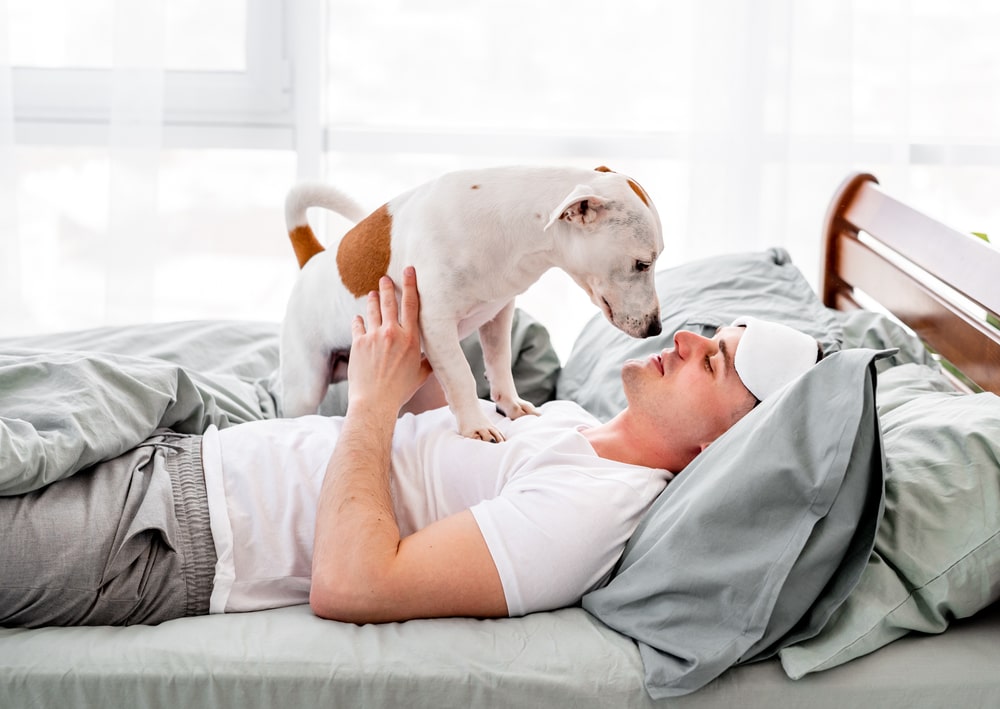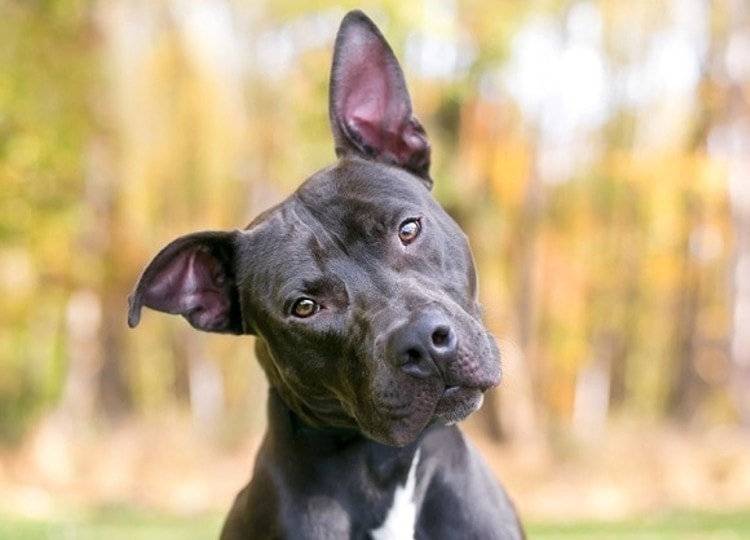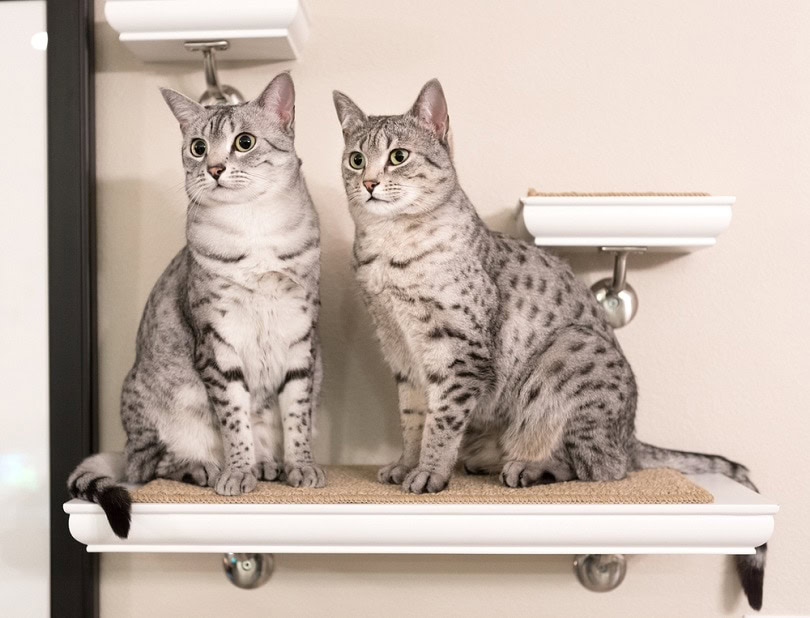VET APPROVED

The information is current and up-to-date in accordance with the latest veterinarian research.
Learn more »Every dog owner knows that their furry friend exhibits odd behaviors at times. Most of their quirks are harmless and cute. Even though our pets’ weirdness is part of their charm, sometimes we have to ask why they behave in strange ways. One question many dog owners have is, “Why does my dog stand on me?” Perhaps your 80-pound Labrador Retriever thinks they’re a lap dog who needs to stand on you every time you sit down. Does this sound familiar?
Standing on their humans is a common behavior among dogs of all sizes. In this article, we’ll examine the most probable reasons dogs like to stand on their humans and discuss when there might be cause for concern.

The 7 Possible Reasons Your Dog Stands on You
1. They Want Attention
One of the most common reasons our dogs love to stand on us is because they want attention. Dogs are social animals that become very attached to their humans. When we spend too much time on our laptops or have been out all day, our dogs miss us, and they get bored.
Sometimes, your dog will try to engage by sharing a toy or barking. Other times, they take the direct approach of jumping on your lap when you sit down. If you’ve ever experienced this, you know it is often accompanied by a direct gaze into your eyes. Your dog tells you you’ve done enough other stuff today, and it’s time to pay attention to them. They may be trying to get you to feed them or take them out for a walk. Some playful dogs will do this as an invitation to a game or to get you out of bed, if you’re running late with their breakfast.
2. They Love You
Even if you spend plenty of time playing with your dog and showering them with attention, they still might climb on top of you when you sit on the couch. Often, this is their way of demonstrating they care. Dogs like to show their owners that they love them. Getting close can be a way to do that.
Your dog may also want your affection. Standing right on top of you can be their way of asking for pets and ear scratches. Give them a few pets and they may hop down or settle in for a long cuddle session in your lap.
However, keep in mind that by giving them attention or treats, you are reinforcing this behavior, which is fine if you don’t mind your pooch standing or sitting on you. Otherwise, redirect their attention to a nearby bed, and make sure to ignore their attempts to stand on top of you, by getting up and walking away. Avoid sending mixed signals and be consistent in what you expect of them.
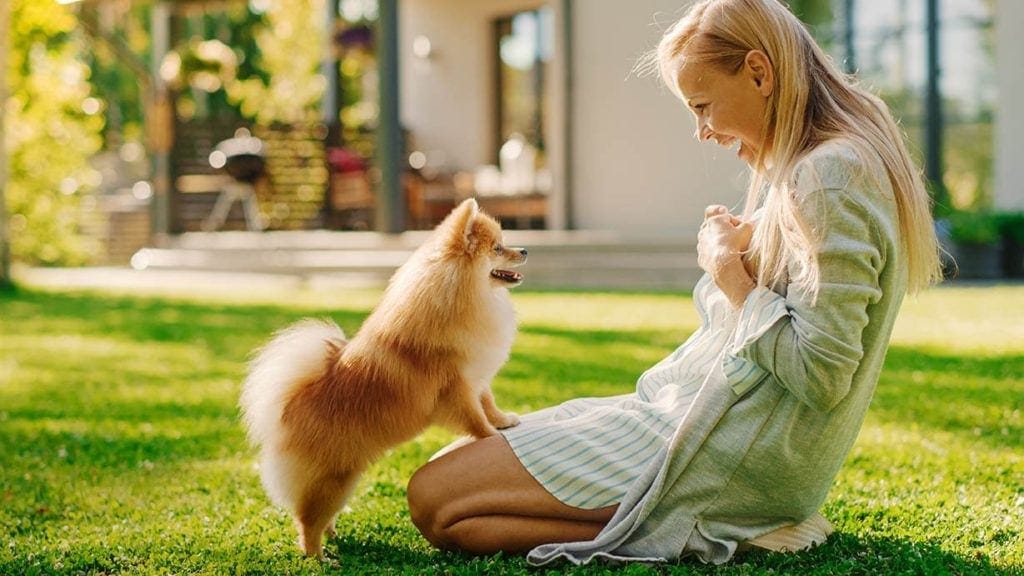
3. They’re Sick
We talk to our dogs, but they cannot return the favor. If your dog is sick, the only way they can communicate with you is through body language and behavior. As a pet owner, you know your pup and their normal personality. If your usually playful and energetic dog is suddenly subdued and clingy, it can be a clue that something isn’t right in their world.
There are many signs your dog might be ill, such as limping, shaking, panting, excessive licking, sleeping more, or a reduced appetite. If you notice any of these signs in your dog, paired with an increased need to be near you, you should call a veterinarian.
4. Something Is Wrong
Although we don’t know precisely how they do it, dogs can sense when something is wrong or different in their humans’ health. They may be able to smell a change in your body’s scent, particularly in the breath or sweat, and can be trained to detect certain types of cancer.
When your dog does notice something off, they may want to protect you. Standing on you is one way they could try to do this. If you have been under the weather or absent due to an illness, your dog may be more clingy than usual.
5. Learned Behavior
If your dog has received cuddles and attention from standing on you before, they are likely to do it again. Dogs are smart and remember being rewarded for specific behavior. Since standing on you elicited affection in the past, your dog will do it again when they want the same result.
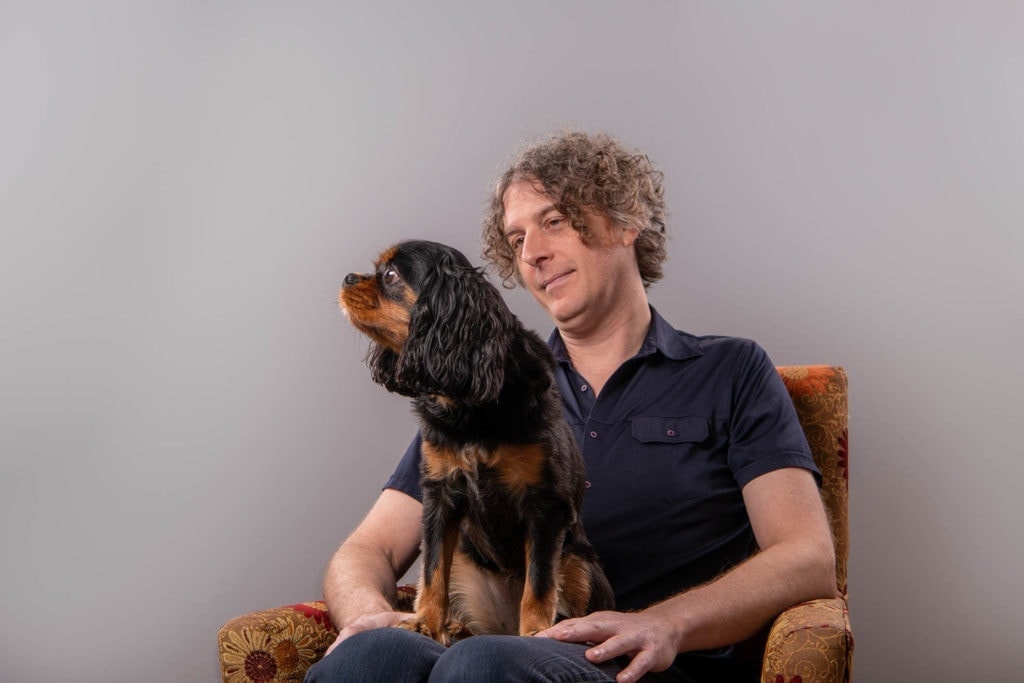
6. They’re Feeling Anxious
Even if your dog isn’t ill, they still might be feeling anxious or stressed about something. Maybe a thunderstorm is on the way or they are in an unfamiliar situation where they feel uncomfortable. Some dogs are afraid of loud noises or strangers, which can encourage them to move closer to you.
Your closeness and affection can provide comfort for a scared or anxious dog. Shaking or tucking their tail between their legs can be one sign that your dog’s hovering is caused by anxiety. If your pet is prone to anxiety in new situations or is easily frightened, you should discuss these behaviors with your vet. They can offer tips on working with your dog to overcome their fears.
7. Asserting Dominance
If your dog is standing on you and exhibiting hostile behavior, such as growling or snapping, you should seek advice from your vet immediately. They can recommend a dog trainer to curb aggressive behavior before it becomes problematic. Letting this behavior go unchecked can lead to future issues. Since sudden, unusual aggression can also be a sign of an underlying issue such as illness, pain or fear, it is vital to seek help from a professional.
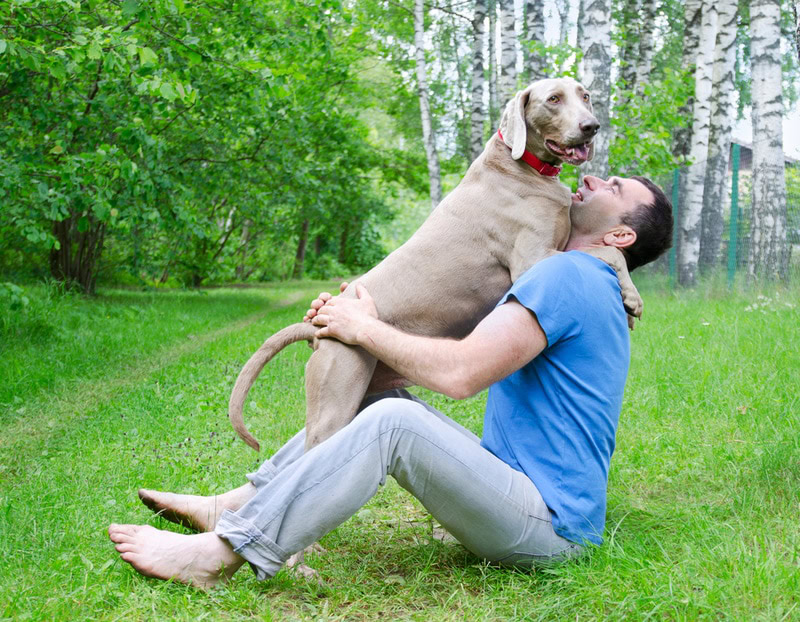

Possible Solutions
Most of the reasons your dog stands on you are not a cause for concern. However, if the behavior becomes problematic, there are steps you can take to lessen it.
First, maintain a routine and feeding schedule they are used to, so they know when to expect their meals and walks to occur. Pay attention to changes in your dog’s behavior and temperament, and talk with your veterinarian if you notice anything unusual.
Finally, make sure you are giving your dog the exercise, mental stimulation, and attention they need every day. If your dog craves affection, give them plenty of love and cuddles. After all, love is the best gift our pets can share!
Check out some other interesting dog reads below:
- Why Does My Dog Like To Sit On Me? 7 Common Reasons
- Why Is My Dog So Attached to Me? 5 Possible Reasons
Featured Image Credit: Tatyana Vyc, shutterstock
